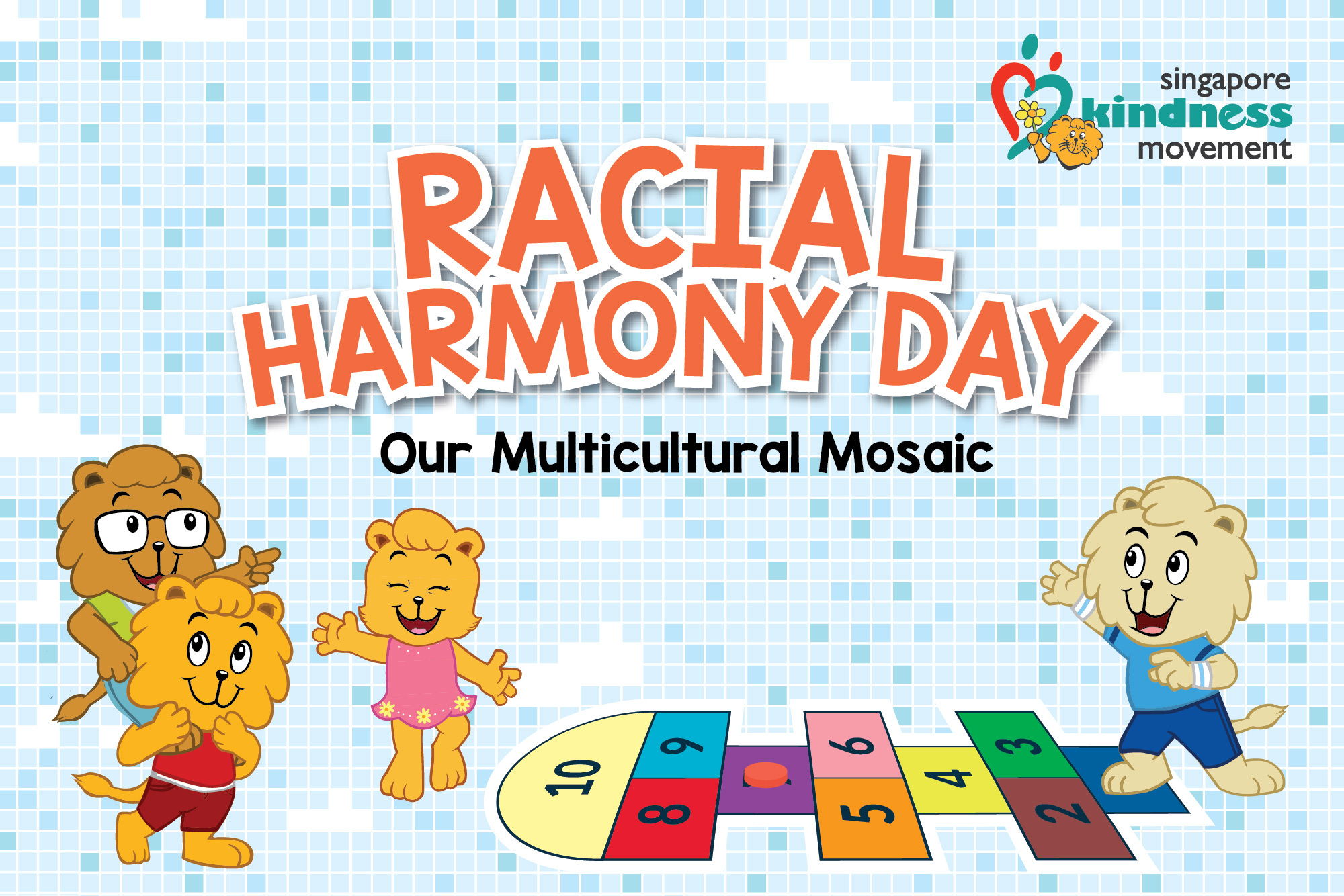Discovering the Beauty of Malay Language through Drama
14 Oct 2016
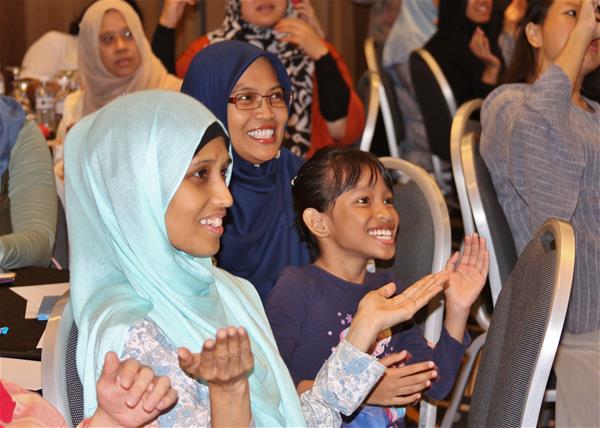
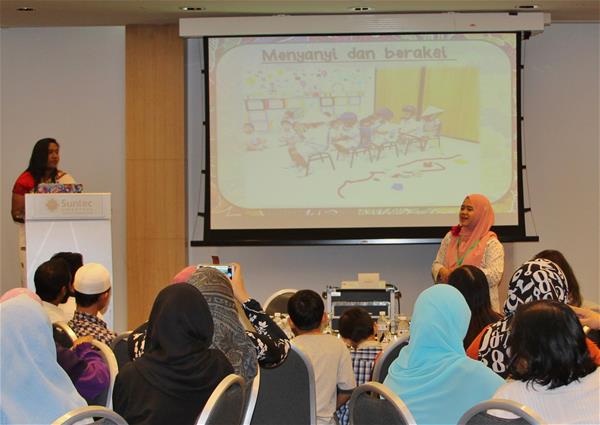
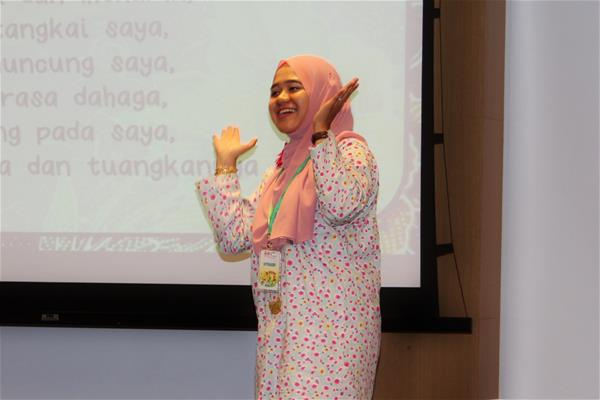
With English becoming more commonly used at home, it can be challenging for some parents and educators to teach their Mother Tongue language.
At The Mother Tongue Languages Symposium (MTLS) 2016, Ms Luklu Ulhamdiyah Mohd Malik, a pre-school mother tongue language teacher, shared how to use educational drama strategies to help children learn and appreciate the Malay language in a fun way, while sharing about related values and culture.
- Role-playing of traditional activities
Teaching your child about cultural activities will allow them to learn more about themselves and their environment, as well as explore issues relevant to their daily lives. For example, Ms Luklu developed a role-playing activity that mimics a Malay wedding called, “Kpak Kpak Bing Bing”. Two students act as the bride and groom, some act as guests and others play traditional Malay musical instruments like the “Kompang” and “Gendang”. Through this, children learn words related to the cultural events, while discovering more about their culture.
Using simple household items such as a frying pan or broom as props, children can create imaginary scenarios and discuss themes creatively, while using the language in a fun and enjoyable manner. Creating something new can also be a great boost to their self-confidence and sense of accomplishment.
- Simulating acts of forgiveness
When teaching manners and etiquette, children can also pick up related words and learn to use the language appropriately. For example, in Ms Luklu’s “Bersalaman & Bermaafan” and “Bersopan Santun” classroom activity, students go around the classroom, shaking hands with each other and ask for forgiveness in a polite manner. Exposing children to such gestures will emphasise the importance of equality and also teach them about respect.
- Singing of Malay folk songs
“Children love songs,” exclaimed Ms Luklu, who firmly believes in the importance of folk songs. It allows children to understand more about their ancestry and take pride in their roots. Parents and educators should explore simple Malay folk songs and modernising them to fit into our present time.
- Storytelling with pets & puppets
Storytelling themes like, “Animals” or “Pets” can be used to teach children words related to what see around them in daily life, while sharing about responsibility, compassion and empathy. Animal puppets or masks can be used to spice up the activity too. During story time, use the Malay language to discuss about the animal’s natural habitat and behaviour and talk about how to care for another living creature.
Ultimately, it is important for parents to play different roles in supporting their children’s dual language development. “One parent can focus on English while the other can focus on Malay. Children will be able to excel in both languages if done correctly,” explained Ms Luklu, who also encouraged parents to work closely with teachers so the home environment is supportive of what is taught in school.
Expressing her concern, Ms Luklu stressed the importance of developing the future generation of Malays to appreciate the significance of Malay language and culture would not be forgotten.

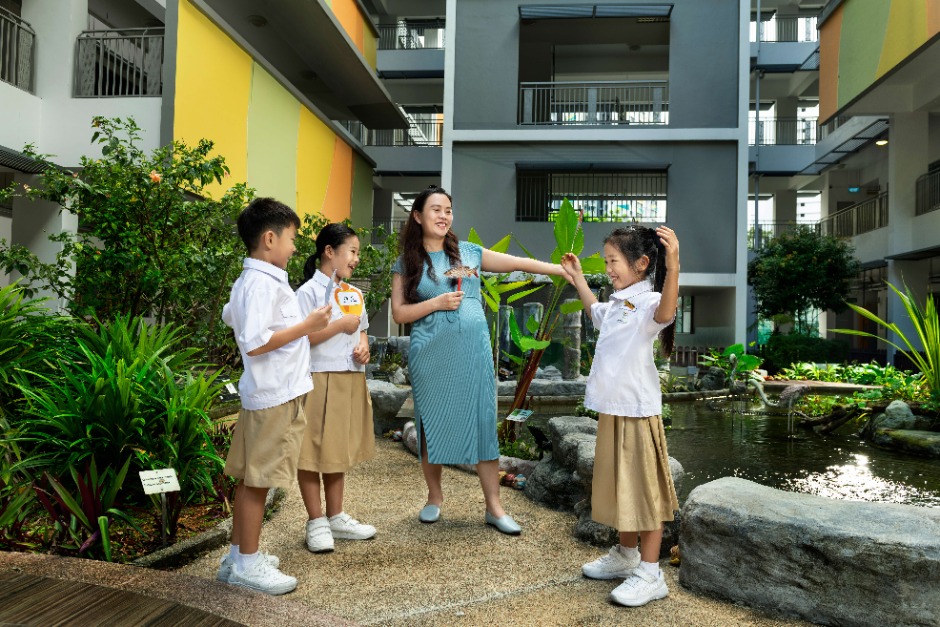
.jpg)


